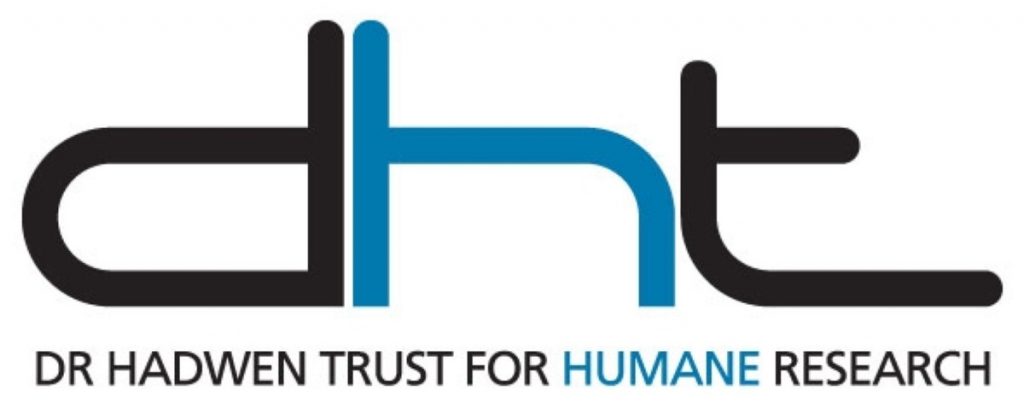Dr Hadwen Trust welcomes European Food Safety Authority report
Animal tests are failing to protect public from shellfish poisoning – Dr Hadwen Trust welcomes European Food Safety Authority report.
Non-animal medical research charity the Dr Hadwen Trust has welcomed a scientific report by the European Food Safety Authority (EFSA) [1] which concludes that current animal safety tests on mice and rats are insufficient to detect marine biotoxins in shellfish that can cause nausea, vomiting, diarrhoea, neurological problems and in extreme cases, even death if consumed by people.
In certain environmental conditions, naturally occurring toxins in the sea can be concentrated in shellfish as they filter feed. While not harmful to the shellfish, they can be poisonous to people who eat them. There are eight toxin groups of concern, and testing for these toxins is vitally important for the protection of human health.
Traditionally large numbers of mice have been used in toxicity tests that in the UK are classified under the ‘substantial severity limit’ as likely to cause considerable suffering. [2] Hundreds of animals are used per test in which they are injected with toxins into the abdomen and can suffer uncontrollable muscle spasm, convulsions, paralysis, gasping for breath, coma and death. Despite such severe suffering, the mouse tests have never undergone independent scientific validation and their lack of sensitivity makes their continued use unacceptable.
In its report (published Oct 8th 2008) EFSA acknowledges that the animal safety tests “have shortcomings” for example it cannot be established that they reliably produce accurate or precise results and there are concerns that the tests are not sensitive enough to detect toxins at the levels currently required by regulators to deem shellfish as safe for human consumption.
More accurate non-animal alternative methods (such as using liquid chromatography-mass spectrometry/mass spectrometry (LC-MS/MS) ) are available but none have yet been validated to replace the inadequate animal tests. These are far more sensitive than mouse tests, able to detect the toxins at concentrations well below the current regulatory requirement.
British and European legislation [3] clearly states that where an alternative method is available, the equivalent animal test must not be carried out. British law also requires that the likely adverse effects on the animals (in this case severe) must be weighed against the likely benefits of performing the test. The Dr Hadwen Trust believes that under that cost vs. benefit assessment, there can be no ethical or scientific justification for subjecting mice to shellfish toxin testing and that urgent adoption of non-animal methods is required to eliminate animal suffering and properly protect consumers against potentially lethal marine poisons.
Wendy Higgins for the Dr Hadwen Trust says: “It is ludicrous that we continue to subject thousands of mice each year to hideous tests where they can suffer appalling pain and death, when we know very well that the results are unreliable. It is imperative that animal and human welfare is protected but persisting with these animal tests is failing to do either. The Dr Hadwen Trust welcomes EFSA’s conclusions but more urgent action is needed. We believe the British government and European politicians have a moral and scientific duty to act swiftly to end these cruel tests and replace them with non-animal methods.”
In Germany, the mouse bioassay has never been used as non-animal methods are accepted by regulators.
Notes to Editors
For more information contact Wendy Higgins, Communications Director, Dr Hadwen Trust on mobile: 07989 972 423 or mobile wendy@drhadwentrust.org
1. Marine biotoxins in shellfish – Azaspiracid group[1] – Scientific Opinion of the Panel on Contaminants in the Food chain. Report and summary available at http://www.efsa.europa.eu/EFSA/efsa_locale-1178620753812_1211902121673.htm
2. A Parliamentary Question answered on March 8 2006 by the then Home Office Minister Andy Burnham confirmed that “all protocols for the detection of toxins in shellfish intended for human consumption were assigned a substantial severity limit.” And that “A total of 6,468 animals were used in the relevant procedures during 2004.”
3. The Animals (Scientific Procedures) Act 1986 in the UK and the European Directive 86/609/EEC.
4. Non-animal methods for detecting some forms of toxins have been validated and accepted for use in the EU.





-01.png)